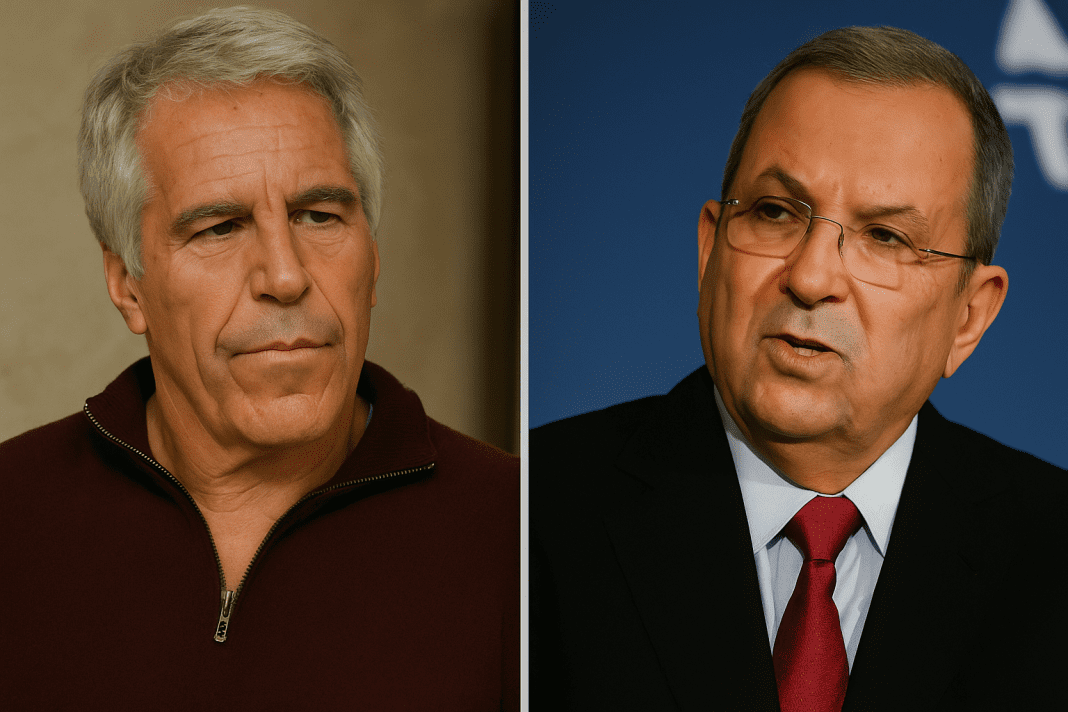Leaked documents have revealed a new layer in the story of Jeffrey Epstein, the disgraced American financier, showing how he played a hidden part in Israeli military and security operations across Africa.
Epstein’s Shadow Role in African Security Operations
The files, shared by the hacker group Handala and reviewed by the U.S. House Oversight Committee, detail how Epstein acted as an informal broker between former Israeli Prime Minister Ehud Barak and African leaders.
According to the reports, the communications date back to 2012 and 2013, when Barak served as Israel’s defense minister. Epstein appeared to work behind the scenes to build ties with Côte d’Ivoire, a West African country seeking new security partnerships after years of civil unrest.
Emails show Epstein arranging meetings, drafting messages, and helping push forward proposals for Israeli surveillance systems and intelligence-sharing projects. One message from Epstein to Barak reads:
“With civil unrest exploding … and the desperation of those in power, isn’t this perfect for you?”
Barak responded cautiously but did not dismiss the idea. “You’re right in a way,” he replied, “but not simple to transform it into a cash flow.”
Investigators say that “cash flow” likely referred to contracts for Israeli defense firms linked to Barak’s network. Companies such as Elbit Systems and MF Group later provided “public order” and monitoring equipment to Côte d’Ivoire once the United Nations lifted its arms embargo in 2014.
These operations were reportedly coordinated through Epstein’s personal connections and private travel schedule. Leaked itineraries show his visits to Abidjan, Côte d’Ivoire’s capital, around the same time that Israeli delegations arrived for defense talks.
Evidence of Israeli Military Expansion in Africa
The leaked emails suggest that Epstein helped build a bridge between Israeli intelligence experts and African governments. A proposal allegedly authored by former Israeli military intelligence chief Aharon Ze’evi-Farkash described an advanced SIGINT (signals intelligence) network. The system could intercept phone, radio, and satellite communications — a technology originally used in conflict zones such as Gaza and the West Bank.
By placing Côte d’Ivoire under the same type of surveillance infrastructure used in Israel’s defense sector, the plan would give the Ivorian government access to real-time intelligence. Epstein’s role, according to the documents, was to facilitate the deal and ensure Israeli contractors could legally and financially operate in the region.
After months of lobbying, the proposal was reportedly approved. The documents indicate that Barak and Epstein celebrated the outcome privately, seeing it as a “mutual success.”
However, the implications of this operation have now resurfaced. Investigators claim the partnership blurred the lines between private business, foreign intelligence, and personal profit. Epstein, already under scrutiny for other criminal conduct, appeared to use his global network to gain access to political leaders and confidential defense discussions.
While Barak has repeatedly said his ties with Epstein were “purely business-related,” the newly leaked communications paint a different picture. They show joint meetings, coordinated strategies, and mutual interest in the African market far beyond simple investment.
So Epstein wasn’t just trafficking — he was laundering millions, and the feds buried it.
The files also include evidence of Epstein helping Barak connect with Ivorian leaders, including family members and advisors of President Alassane Ouattara, during trips to New York and West Africa. These meetings reportedly overlapped with Israeli state visits, raising questions about whether Epstein’s involvement had official backing or was part of a private venture.
Epstein’s Connection With Ehud Barak and New Allegations
The new revelations come as interest in Epstein’s ties to Israeli politics has grown again. His long friendship and business dealings with Ehud Barak have faced public scrutiny for years. Barak was frequently seen entering Epstein’s New York townhouse and even admitted to visiting his private island, though he has denied any wrongdoing.
Adding to the controversy are disturbing claims made by Virginia Giuffre, one of Epstein’s most well-known accusers. In her memoir Nobody’s Girl: A Memoir of Surviving Abuse and Fighting for Justice, Giuffre described being assaulted by a “well-known prime minister” at Epstein’s island in 2002, when she was 18.
While Giuffre did not name the man in the book, she previously identified Ehud Barak in legal filings as the person she was referring to. She wrote that she had pleaded with Epstein not to send her back to the “Prime Minister” after the incident, but Epstein refused, saying coldly, “You’ll get that sometimes.”
Barak has denied these allegations entirely, calling them “lies” and “fabrications.” No charges have ever been filed against him.
Still, the combination of leaked documents and survivor testimony has reignited public discussion about how deeply Epstein was embedded in international politics. Beyond the sex-trafficking crimes for which he was convicted, these files show a man involved in intelligence-linked ventures, defense negotiations, and financial schemes reaching across continents.
Epstein’s ability to maintain close ties with powerful figures — from U.S. presidents to Israeli leaders — is once again under the spotlight. His cooperation with Barak in Africa, detailed through thousands of leaked emails and schedules, adds another chapter to the complex web of influence and secrecy that surrounded his life.
The files not only expose how Epstein merged political power with financial ambition but also raise questions about the blurred boundaries between national interests and private profit.
As these revelations unfold, they provide a rare look inside Epstein’s lesser-known global operations — a world where diplomacy, money, and espionage quietly intertwined behind the scenes.
